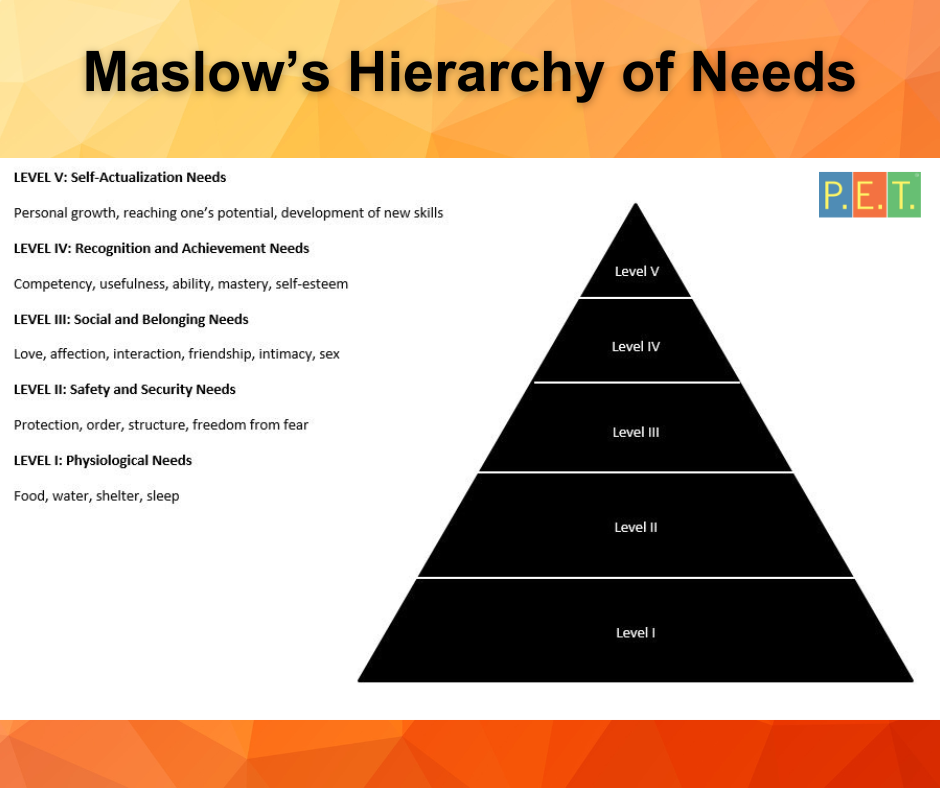When parents themselves have unmet personal needs at any level in Maslow’s Hierarchy, they are very often unaccepting – not only of themselves, but unaccepting of their children and others as well.
Parents who consistently label children’s behavior unacceptable even when there is no tangible effect on the parent, might examine the close relationship between their own acceptance of self and acceptance of others. If you have a high line on your Behavior Window for yourself (don’t like yourself, impatient with yourself, disappointed in yourself), you are likely to have a high line (be uptight, impatient, unaccepting) for your child. If you can accept yourself more (lower your line for yourself), then you may become more accepting of your child.
Some parents find behavior unacceptable simply because their own parents had labeled such behavior unacceptable. General levels of acceptance are often passed from generation to generation, rather than resulting from each person examining and choosing his/her own values.
Parents who want to understand and accept more of their children’s values can often do so by learning more about child development, stages of growth and the outside forces that shape their children’s values (e.g. schools, peer groups, social media, etc.).
Ask yourself these questions:
- Do I have exclusive access to the truth about such matters as style of dress, politics, proper language, religious beliefs, sexual practices, lifestyle? Am I aware that many different kinds of behavior seem to operate successfully all over the world?
- Am I willing to try on for size some of the behavior I now find unacceptable?
- Am I willing to listen to my child’s music, spend time with her friend, watch her favorite shows on Netflix, watch TikTok videos with her, etc.? Do I really like kids, or only kids who engage in behaviors which are “my kind” of behavior?
- Why do I find it hard to accept or love someone who chooses to be different from me or whose perception of reality or goodness is different from mine? Must someone be like me in order for me to like him or her?
- Am I getting my needs met and my feelings of self-worth from my own productive efforts, or do I depend on how my children turn out, or on how people will evaluate them (and then evaluate me)?
Here’s a powerful poem by Kahil Gibran that we share in our P.E.T. classes:
Your children are not your children.
They are the sons and daughters of Life’s longing for itself.
They come through you but not from you, and though they are with you, yet they belong not to you.
You may give them your love but not your thoughts, for they have their own thoughts.
You may house their bodies but not their souls, for their souls dwell in the house of tomorrow, which you cannot visit, not even in your dreams.
You may strive to be like them, but seek not to make them like you. For life goes not backward nor tarries with yesterday.
You are the bows from which your children as living arrows are sent forth.
The archer sees the mark upon the path of the infinite, and He bends you with His might that His arrows may go swift and far.
Let your bending in the archer’s hand be for gladness; for even as he loves the arrow that flies, so he loves also the bow that is stable.


